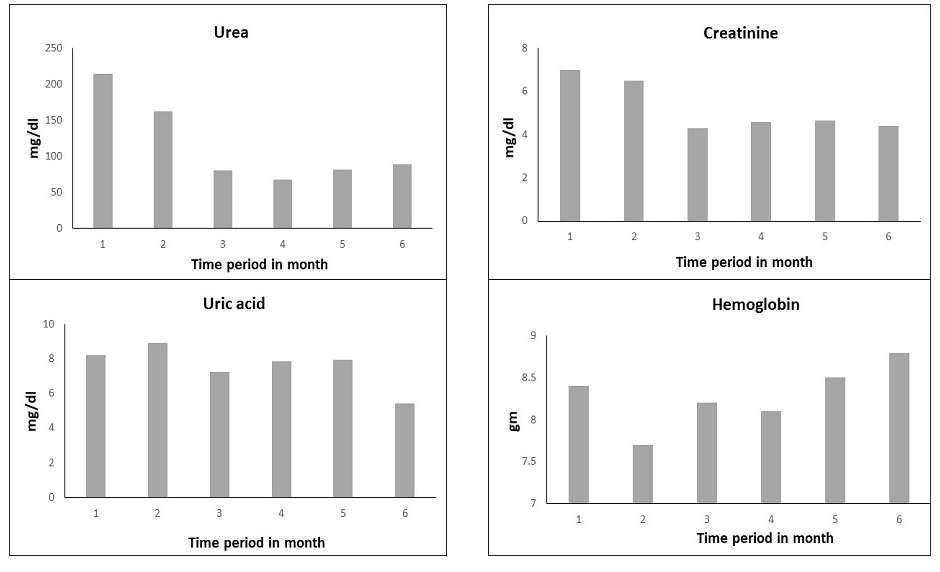Effective Management of Chronic Kidney Disease by Using Ayurvedic Interventions: A Case Report
DOI:
https://doi.org/10.47070/ijapr.v9i7.1979Keywords:
Chronic Kidney Disease, Ayurveda, Mutraghat, HemodialysisAbstract
Renal failure causes a significant rise in the creatinine level, urea nitrogen, fluctuation in serum potassium and high sodium level in the blood. In 2017, 1.2 million deaths of CKD were reported world widely. Kidney transplant, peritoneal dialysis and hemodialysis are some modern methods used to treat renal failure in allopathy. These therapies and treatment are very expensive and unaffordable by the people of low income and middle-income countries. In India, Ayurveda is a conventional practice which is used since ancient times to treat number of disorders without any side effects. A case report of renal failure patient using Ayurvedic treatment is well defined here. A 53-year-old married Sikh, non-alcoholic, nonsmoking male diagnosed with renal failure presented in the Divya Upchar Sansthan, Chandigarh on October 2020. The patient was clinically assessed by Jeebha pariksha (tongue examination) and Naadi pariksha (pulse examination). Patient was administered with Ayurvedic medicines for the duration of six month of treatment. Patient was investigated for the functioning of kidney and hemoglobin before and after initiating Ayurvedic treatment which indicated an improvement in urea, creatinine and uric acid level. From this case study it is shown that chronic kidney disease can be managed by using Ayurvedic treatment without the need of hemodialysis.
Downloads




